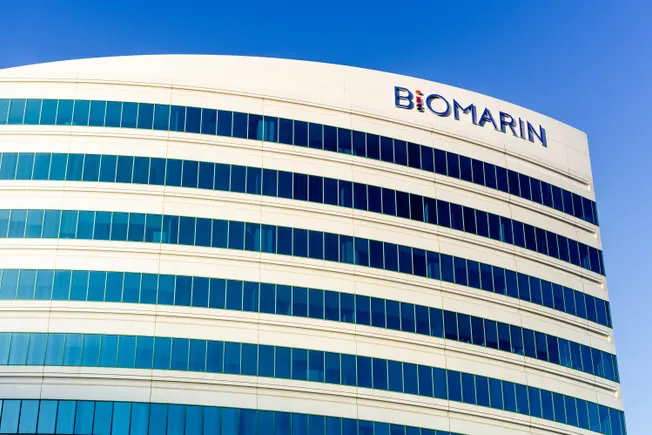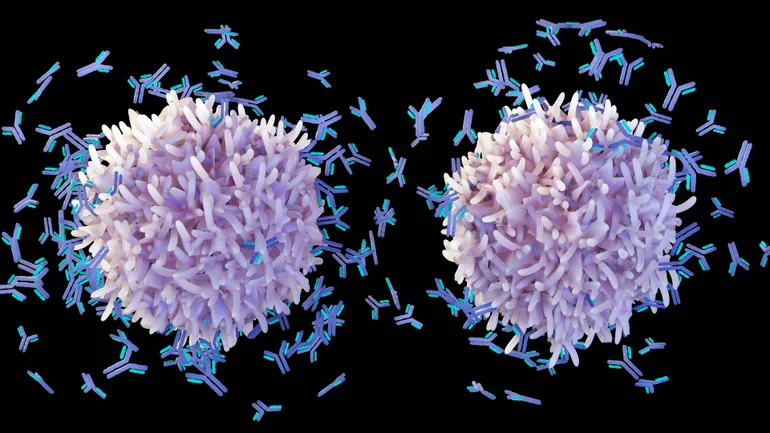First-of-its-kind cell therapy approved by FDA for rare soft tissue cancer


The Food and Drug Administration on Thursday approved a new type of cellular medicine, clearing a therapy developed by the biotechnology company Adaptimmune for a rare soft tissue cancer called synovial sarcoma.
The agency granted Adaptimmune’s therapy, formerly known as afami-cel and to be sold as Tecelra, an accelerated approval for use in some people with metastatic synovial sarcoma who previously received chemotherapy. Those people must have certain immune signatures and tumors expressing a protein, MAGE-A4, that Tecelra is designed to target.
The FDA based its decision on Tecelra’s ability to spur tumor responses in about 43% of people who received it in a clinical trial, with responses lasting a median of about 6 months, according to the therapy’s new labeling. Adaptimmune has to confirm those benefits in an ongoing study to maintain the approval. The company expects to submit those results next year, executives said on a Friday conference call with analysts.
Adaptimmune is launching Tecelra — a one-time treatment — at a list price of $727,000, the most expensive per-dose cost of any cellular medicine for cancer in the U.S. The figure was “based on the clinical value that it brings to patients” with a “rare type of tumor and with a very high unmet need,” said Cintia Piccina, Adaptimmune’s chief commercial officer, during the call.
The American Cancer Society estimates 13,590 people will be diagnosed with soft tissue cancers in the U.S. this year, making them among the rarest types of tumors. Some estimates hold that about 5% to 10% of those tumors are synovial sarcomas, which are aggressive and typically affect men in their 30s or younger. Treatment options are limited, and median five-year survival rates for people with metastatic disease are about 20%, according to Adaptimmune.
“The approval of this state-of-the-art immunotherapy technology provides a critical new option for a patient population in need and demonstrates the FDA’s dedication to the advancement of beneficial cancer treatments,” said Peter Marks, the head of the FDA office that evaluates gene and cell therapies, in a Friday statement.
Adaptimmune hasn’t yet proven its treatment can extend lives. An exploratory analysis from the company showed that, so far in testing, responding patients had a two-year survival probability of about 70%.
The approval of Tecelra marks another step forward for the field of cell therapy. Prior to Thursday, the FDA had OK’d six CAR-T therapies for cancer and, earlier this year, issued the first clearance for a different kind of immune cell treatment.
Tecelra is what’s known as a TCR cell therapy. Like CAR-T therapies, these treatments give a patient’s immune cells special receptors with the ability to recognize a protein flag — in Tecelra’s case, MAGE-A4 — that tumors possess.
TCRs are designed to find intracellular targets, not just those on a cell’s surface. In theory, that feature should help them reach the solid tumors CAR-Ts have difficulty treating. Tecelra’s approval is evidence of that, marking the first time an engineered cell therapy has been cleared by the FDA for a solid tumor. (Iovance Biotherapeutics’ recently approved melanoma therapy Amtagvi doesn’t rely on the same genetic engineering as Tecelra.)
Tecelra is also the first new treatment for synovial sarcoma in more than a decade, according to Adaptimmune. “This is a watershed day,” said company CEO Adrian Rawcliffe, on the conference call.
The approval comes after a long and difficult journey for Adaptimmune. Formed in 2008, the company lost multiple partnerships, laid off staff and restructured its pipeline over the years. Even after the approval, shares were trading Friday at just over $1 apiece, a fraction of their initial offering price in 2015 and indicative of investor skepticism about Tecelra’s sales potential.
Analysts at Mizuho Securities this year lowered peak annual sales projections for the drug to $174 million amid expectations of “conservative uptake.” As with other cell therapies, Tecelra will only be available at “authorized treatment centers” equipped to administer it. Adaptimmune expects six to 10 will be up and running this year and 30 within two years.
The company anticipates its first commercial sales will come in the fourth quarter, and for those numbers to be “modest” before increasing in 2025, Rawcliffe said.
Adaptimmune views Tecelra as the first step in a larger business in soft tissue cancers. A second therapy, lete-cel, could be submitted to regulators next year for two types of sarcomas. Adaptimmune estimates the two therapies combined could generate $400 million in peak yearly sales in the U.S. and climb higher if cleared in other geographies and sarcomas, as well as earlier treatment lines.
“There’s a lot of potential, over time, to expand use,” Rawcliffe said.
This post has been syndicated from a third-party source. View the original article here.




